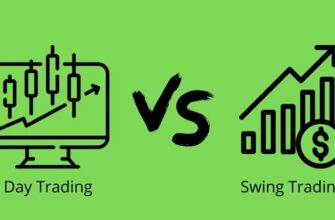Trading Psychology: Mastering Emotions and Mindset for Success
Trading in financial markets can be a rewarding endeavor, but it comes with its own set of challenges. One of the most critical aspects of successful trading is mastering one’s emotions and mindset. Traders often face the twin demons of fear and greed, which can lead to impulsive decisions and significant losses. Developing discipline and patience as a trader is essential for maintaining consistency and ensuring long-term success. Additionally, learning to manage emotions during market volatility can help traders navigate unpredictable and challenging market conditions. In this comprehensive guide, we will delve into the strategies and techniques for overcoming fear and greed, developing discipline and patience, and managing emotions during market volatility.
Overcoming Fear and Greed in Trading
- Understanding the Psychology of Fear and Greed: Fear and greed are two powerful emotions that frequently drive trading decisions. Fear often arises from the fear of losses, leading traders to hesitate or avoid taking necessary actions. On the other hand, greed can result in reckless behavior, pushing traders to take excessive risks in pursuit of quick profits. Recognizing the psychology behind these emotions is the first step in overcoming them.
- Setting Realistic Goals and Expectations: Establishing realistic goals and expectations is crucial for managing fear and greed. Traders must have a clear understanding of their risk tolerance and avoid setting unrealistic profit targets. A well-defined trading plan can help mitigate the impact of emotional impulses and maintain a disciplined approach to trading.
- Implementing Risk Management Strategies: Risk management is a fundamental aspect of overcoming fear and greed in trading. By implementing proper risk management techniques, such as setting stop-loss orders and position sizing, traders can limit potential losses and reduce fear-driven decision-making.
- Practicing Mindfulness and Emotional Awareness: Mindfulness practices can help traders develop emotional awareness and control. By staying present in the moment and recognizing emotional responses, traders can make more rational decisions and avoid being overwhelmed by fear or greed.
Developing Discipline and Patience as a Trader
- Creating and Following a Trading Plan: A well-structured trading plan is a cornerstone of discipline in trading. It should include entry and exit strategies, risk management rules, and guidelines for different market scenarios. Sticking to the plan, even during turbulent market conditions, is crucial for maintaining discipline.
- Avoiding Impulsive Decisions: Impulsive decisions can be detrimental to a trader’s success. Developing discipline involves resisting the urge to deviate from the trading plan based on emotions or short-term market fluctuations. Taking the time to analyze and confirm trading signals before acting can prevent unnecessary risks.
- Learning from Mistakes: Mistakes are inevitable in trading, but they can be valuable learning opportunities. Instead of dwelling on losses, disciplined traders take the time to assess their mistakes, identify patterns, and adjust their strategies accordingly.
- Practicing Patience in Trading: Patience is a virtue in trading. It involves waiting for high-probability trading setups and not forcing trades during unfavorable market conditions. Patience enables traders to remain calm and focused, reducing the impact of emotional swings.
Managing Emotions During Market Volatility
- Accepting Market Volatility as a Norm: Market volatility is an inherent part of trading, and accepting this fact can help traders manage their emotions better. Understanding that price fluctuations are a natural occurrence in financial markets can prevent unnecessary panic or over-excitement.
- Avoiding Overtrading: Volatility may tempt traders to overtrade in search of quick profits. However, excessive trading can lead to emotional exhaustion and poor decision-making. Traders should focus on quality trades and adhere to their trading plan.
- Utilizing Stop-loss Orders Wisely: During periods of high volatility, stop-loss orders become even more critical. Placing stop-loss levels at appropriate points can protect traders from significant losses in rapidly changing market conditions.
- Seeking Support and Perspective: Traders may face stressful situations during periods of extreme volatility. Connecting with fellow traders or seeking professional support can provide perspective and help manage emotions effectively.
Conclusion
Mastering trading psychology is essential for achieving success in the financial markets. By overcoming fear and greed, developing discipline and patience, and managing emotions during market volatility, traders can build a strong foundation for consistent and profitable trading. Implementing these strategies may not be easy, but with practice and dedication, traders can significantly improve their decision-making and overall trading performance. Remember, becoming a successful trader goes beyond analyzing charts and financial data—it requires understanding and managing the human side of trading.









